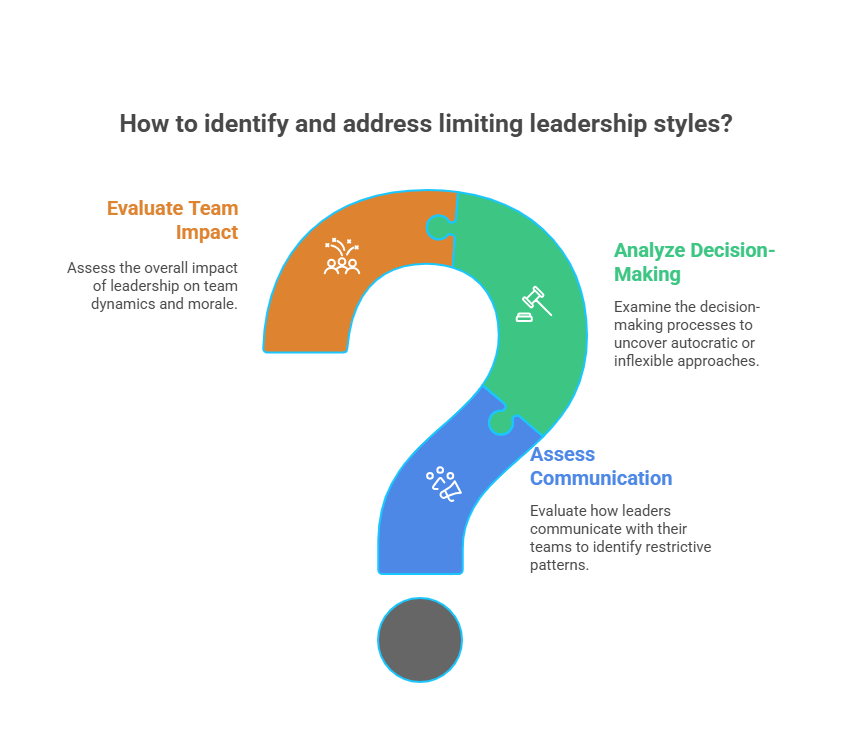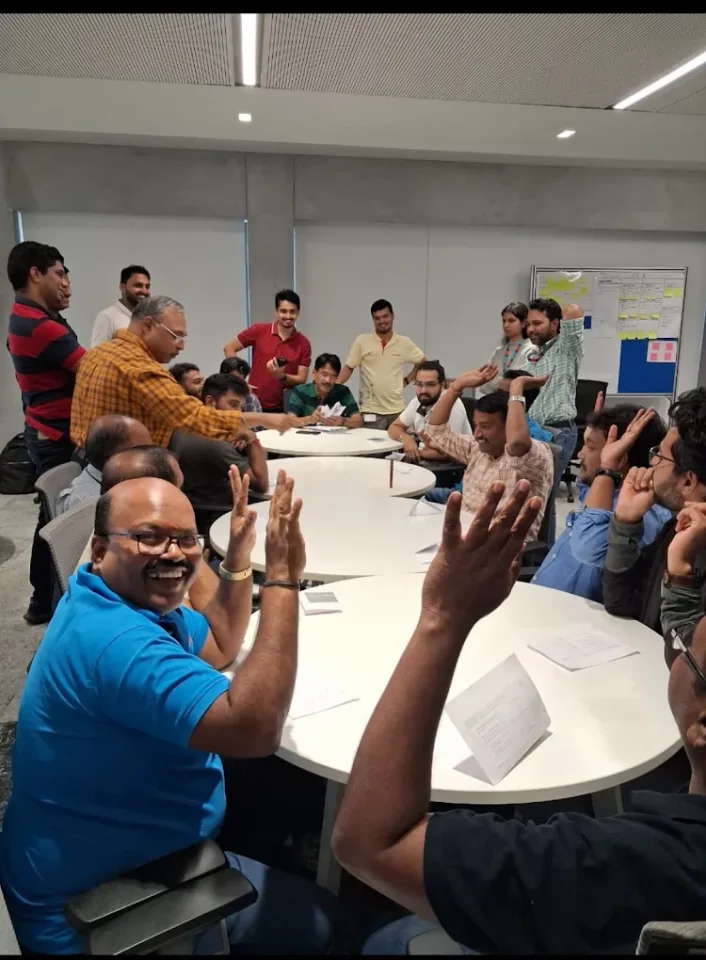Is Your Leadership Style Holding You Back?
Identifying Limiting Leadership Styles
Leadership styles are diverse, and what works in one situation may not work in another. However, some styles, when rigidly applied or taken to extremes, can become detrimental. Recognizing these potential pitfalls is the first step toward improvement.

The Autocratic Leader: This leader makes decisions unilaterally, with little to no input from their team. While decisiveness can be valuable, an overly autocratic approach can stifle creativity, demotivate employees, and lead to resentment. Team members may feel undervalued and disengaged, resulting in decreased productivity and innovation.
The Laissez-Faire Leader: At the opposite end of the spectrum, the laissez-faire leader provides minimal guidance or direction. While autonomy can be empowering, a lack of structure and support can lead to confusion, inefficiency, and a lack of accountability. Team members may feel lost and unsupported, resulting in missed deadlines and poor quality work.
The Micromanaging Leader: This leader closely monitors every aspect of their team's work, often interfering with tasks and providing excessive direction. While attention to detail is important, micromanagement can erode trust, stifle creativity, and create a sense of constant scrutiny. Team members may feel suffocated and demoralized, leading to decreased motivation and performance.
The People-Pleasing Leader: This leader prioritizes being liked over making difficult decisions or providing constructive feedback. While building positive relationships is important, an excessive focus on pleasing everyone can lead to indecisiveness, a lack of accountability, and a failure to address performance issues. Team members may perceive this leader as weak and ineffective, leading to a lack of respect and trust.
The Perfectionist Leader: This leader sets impossibly high standards for themselves and their team, often focusing on minor details and criticizing even minor imperfections. While striving for excellence is admirable, an obsession with perfection can lead to stress, burnout, and a fear of failure. Team members may feel overwhelmed and discouraged, leading to decreased motivation and creativity.

The Importance of Self-Awareness
The key to overcoming limiting leadership styles lies in self-awareness. Leaders must be willing to honestly assess their strengths and weaknesses, and to understand how their behavior impacts others.
Seek Feedback: Actively solicit feedback from team members, peers, and superiors. Be open to hearing constructive criticism, even if it's uncomfortable. Use tools like 360-degree feedback assessments to gain a comprehensive understanding of your leadership style.
Reflect on Your Actions: Regularly reflect on your decisions and interactions. Ask yourself what went well, what could have been done better, and how your actions impacted others. Keep a journal to track your thoughts and feelings.
Identify Your Triggers: Pay attention to situations that tend to trigger negative behaviors. For example, do you become more autocratic when under pressure? Do you tend to micromanage when you're feeling anxious? Understanding your triggers can help you anticipate and manage your reactions.
Understand Your Values: Clarify your core values and how they influence your leadership style. Are your values aligned with the values of your organization and your team? Are you leading in a way that is authentic to yourself?
Cultivating Adaptability
Effective leadership requires adaptability. Leaders must be able to adjust their style to fit the needs of the situation and the individuals they are leading.
Situational Leadership: Embrace the principles of situational leadership, which emphasizes tailoring your approach to the specific needs of each team member and the demands of the task at hand. This involves assessing the competence and commitment of each individual and adjusting your level of support and direction accordingly.
Emotional Intelligence: Develop your emotional intelligence, which includes self-awareness, self-regulation, empathy, and social skills. Emotional intelligence allows you to understand and manage your own emotions, as well as the emotions of others. This is crucial for building strong relationships, resolving conflicts, and motivating your team.
Active Listening: Practice active listening, which involves paying attention to what others are saying, both verbally and nonverbally. Ask clarifying questions, summarize what you've heard, and show genuine interest in their perspectives. This helps you build trust and understanding, and it allows you to make more informed decisions.
Empowerment: Empower your team members by delegating tasks, providing them with autonomy, and giving them opportunities to develop their skills. This fosters a sense of ownership and accountability, and it allows them to grow and contribute to their full potential.
Practical Strategies for Improvement
Here are some practical strategies for overcoming limiting leadership behaviors:

Delegate Effectively: Learn to delegate tasks effectively, providing clear instructions, setting expectations, and providing support without micromanaging.
Provide Constructive Feedback: Give regular, specific, and actionable feedback, focusing on behaviors rather than personal traits. Frame feedback in a positive and supportive way and focus on helping team members improve.
Encourage Collaboration: Foster a collaborative environment where team members feel comfortable sharing ideas, asking questions, and challenging assumptions.
Celebrate Successes: Recognize and celebrate team and individual accomplishments. This boosts morale, reinforces positive behaviors, and creates a sense of shared purpose.
Seek Mentorship or Coaching: Work with a mentor or coach who can provide guidance, support, and accountability. A mentor or coach can help you identify your blind spots, develop new skills, and overcome limiting beliefs.
Continuous Learning: Commit to continuous learning and development. Read books, attend workshops, and participate in online courses to expand your knowledge and skills.
By embracing self-awareness, cultivating adaptability, and implementing practical strategies for improvement, leaders can overcome limiting behaviors and create a more effective and empowering leadership style that fosters growth, innovation, and high performance. The journey of leadership is a continuous process of learning and refinement, and the willingness to adapt and evolve is essential for long-term success.

Ready to Elevate Your Leadership Style?
Explore our expert-led Leadership Coaching and Development Workshops designed to help you overcome limiting behaviors, adapt to dynamic environments, and lead with confidence, clarity, and impact.
Discover practical tools, real-world strategies, and personalized support that helps you grow, both as a leader and as a person.

